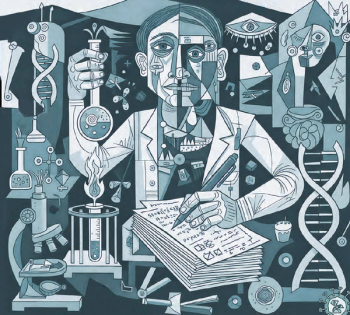
- Contagion, February 2023 (Vol. 08, No. 1)
- Volume 8
- Issue 1
It Adapts to Us, We Adapt to It: Living With the Ever-Changing SARS-CoV-2
As COVID-19 evolves, learning how to live with a virus that has become endemic will have its challenges, but medical science will help the public be able to accept it.
A new year has begun, and with it attention is shining on new SARS-CoV-2 variants…again. The media has run with headlines of “Most Immune-Evasive Variant Yet,” as they have done repeatedly with so many other variants that became dominant. As a clinician, it prompts me to reexamine the utility of our therapies and ensure that treatment of COVID-19 has not substantially changed. But as a citizen, I have to admit: I have had my fill. I change the channel, close the news website, or turn the page.
Viruses change. Our immune system adapts to counteract them. Then they change again, and our immune system adapts again. This dance—or war—has been going on not merely since humans first began walking on the earth, but for much longer. Humans are not the primary host of most viruses—bacteria are. As noncellular particles dependent on a host cell for replication, viruses must change to continue to exist. And in which direction do they change? They change toward variants that evade current immunity. According to the Centers for Disease Control and Prevention, US variants since October 2022 show this dramatically, as BA.5 went from dominating in October to losing ground quickly to BQ.1.1/BQ.1 to being dominated by XBB.1.5 in early 2023.
The situation has never been as closely watched with any virus as it has with SARS-CoV-2. The history of the pathogen has unfolded in real time over the past 3-plus years, with more information about the virus and COVID-19 disease coming at the public, scientists, and clinicians every day. The need for actionable information in the beginning was immense, leading to rapid-fire therapeutic ideas without sufficient supporting information. It also led to hot takes by new personalities who rose to fill the data vacuum with proclamations of knowledge that did not exist. Some who received the most attention were those who shouted the loudest about our certain doom, proclaimed the pandemic’s end between waves, or ridiculed people doing their best to stay calm while navigating a confusing world. All were fatiguing.
This adds up to a picture that is difficult to process intellectually. My attempt to do so boils down to acceptance. SARS-CoV-2 is a virus that is here to stay. Its disease, COVID-19, will not have the same effect on society that it has had thus far, but will enter medical textbooks as a respiratory virus that causes severe disease in some people. Up-to-date vaccination efforts will remain crucial, and vaccines for COVID-19 will continue to be developed and modified on a schedule that we cannot yet know. Hopefully one that provides broad mucosal immunity will be developed soon.
Viruses change and adapt. We have to live with each other.
Articles in this issue
almost 3 years ago
So You Made the Decision to Implement Vancomycin AUC Dosing. Now What?almost 3 years ago
Health Equity and the Impact on Infectious Diseasealmost 3 years ago
Climate Change Effects on Vector-Borne Disease: The Case of Lymealmost 3 years ago
Ending the HIV Epidemic: What Is Past Is Not PrologueNewsletter
Stay ahead of emerging infectious disease threats with expert insights and breaking research. Subscribe now to get updates delivered straight to your inbox.

































































































































